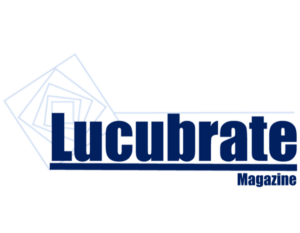[This post has already been read 1462 times!]
Education is of the vital essence for modern society. One needs to learn about culture, history and other essential aspects to contribute to contemporary society and develop future skills.
Many ask, “Why is education important?” That is a big question. And the question has many answers. We will give some answers, and we suppose many other solutions to that question might be excellent or better than our answers. This is one of the articles in Lucubrate Magazine that try to answer “Why Education?”
Education plays an essential role in the life of modern people. It is difficult to imagine a person who wants to achieve some great goals and not obtain good knowledge. Education is the thing which helps to acquire this same information. That is why it is possible to say that a well-educated person differs significantly from a first-year pupil.
Education Create us for the Future.
Education systems are expected to maintain national economic competitiveness in world markets while preparing graduates for global competition in labour markets. Education is viewed as a ‘social investment’ as it creates an economically productive population that can finance social policy while offering protection against the risks of unemployment and poverty. Furthermore, state education systems fulfil the fundamental task of socialising the population and teaching literacy, thus producing well-integrated citizens. Obviously, education is essential to “social citizenship”. Consequently, state education systems must fulfil disparate demands and are simultaneously influenced by national and international factors. A country’s economic performance, for example, controls the configuration of its national education system. Similarly, party-political ideologies or religious actors —especially in Central Asia and some African countries—influence education policy objectives. The performance of education systems also varies considerably between countries and their institutional structures. [1]
Education is an informal process in which an infant watches others and imitates them. From the moment a child is born, their education begins. As the infant grows into a young child, education becomes more formal through play dates and preschool. Once in grade school, academic lessons become the focus of education as a child moves through the school system.
Education 4.0 in 21st Century Skills
Education moulds people into leaders with knowledge about subjects. Still, it also shows them how to lead with emotions and actual values. Educated people can easier differentiate between right and wrong. Thus education helps reduce the crime rate. Bad events are happening worldwide – only competent leaders can help guide us down a good and right path.
Integrating the core educational components with Industry 4.0 is the beginning of a model involving flexible pedagogical practices for the different stakeholders in the education system. This integration considers the technology that supports [2];
- learning
- connectivity
- storage infrastructure
- institutional guidelines
- organisational processes
- practices to promote innovation
- digital skills training for teachers (doing and being)
- coexistence with digital native students.
An article focused on analysing which components of Education 4.0 are being used in 21st-century frameworks and which teaching and learning strategies are the most successful for developing future skills. The data reveal [2];
- that literature on frameworks highlight case studies and teaching and learning strategies to develop 21st-century skills;
- the skills and knowledge learning dimensions have comprehensive studies, and there are areas of opportunity for studies on the development of character and meta-learning skills;
- the most used teaching and learning strategies setting the trends for educational innovation are research strategies to apply knowledge and reflection and encourage auto-systemic thinking;
- the components of Education 4.0 most addressed are learning methods and competencies; there is a lack of studies aimed at strengthening the infrastructure of schools and the use of ICT
- there is a notable absence of frameworks aimed at teachers and managers and applying strategies to strengthen educational innovation in schools.
References
[1] Michael Windzio and Kerstin Martens, The Global Development, Diffusion, and Transformation of Education Systems: Transnational Isomorphism and ‘Cultural Spheres’ in “Global Pathways to Education”, Palgrave 2022 [2] Laura Icela González-Pérez and María Soledad Ramírez-Montoya, Components of Education 4.0 in 21st Century Skills Frameworks: Systematic Review, Mexico, 2022
Lucubrate Magazine February 2022
The photo on the top of the article: Adobe Stock

Why Education?
Other articles that give answers to the question; why education?
Views: 632





